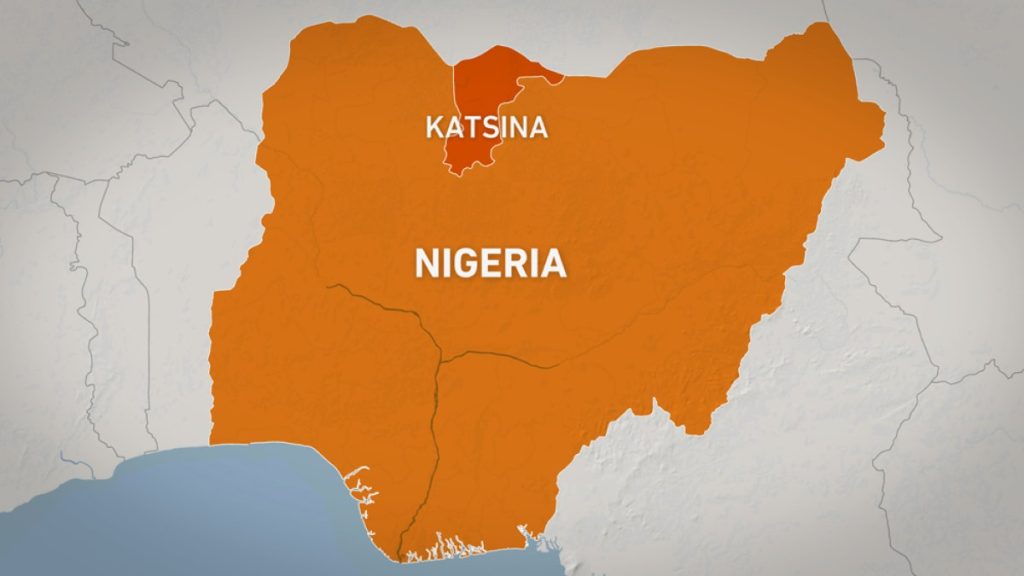Gunmen on motorbikes attacked Maidabino village in Nigeria’s Katsina state, killing seven people and kidnapping at least 100 others. The attack took place in the Danmusa local government area, with residents describing the gunmen as arriving suddenly and shooting at people indiscriminately. The attack lasted for hours, during which properties were destroyed, and women and children were reported missing. Residents were left living in fear and uncertainty, as they waited for news about their abducted loved ones.
State police spokesperson Abubakar Aliyu Sadiq confirmed the attack and the fatalities, but did not provide information about those who were missing. He stated that the police were conducting an investigation into the incident. The attack saw gunmen blocking the roads leading to Maidabino before burning down shops, vehicles, and taking livestock. Auwalu Ismail, a resident, reported that his wife and over 100 women and children were among those kidnapped. The community was left devastated by the violence and loss caused by the gunmen’s actions.
In recent years, abductions in Nigeria’s northwest and central regions have become increasingly common, with armed groups targeting villagers and travelers for ransom. This has led to a climate of fear and insecurity for many communities in these areas. In March, gunmen kidnapped pupils from a school in Kaduna state, while a raid on a school in Kebbi state resulted in over 80 students being taken hostage last year. These incidents highlight the ongoing threat posed by armed groups in the region, who continue to carry out attacks on vulnerable populations, causing significant harm and trauma.
The attack in Maidabino is part of a pattern of violence and instability in Nigeria’s northern regions, with residents living in constant fear of being targeted by armed groups. The gunmen’s use of motorbikes to carry out attacks adds to the difficulty of preventing and responding to such incidents, as they are able to move quickly and escape easily. The impact of such attacks on communities is profound, with people losing loved ones, livelihoods, and possessions in the wake of the violence. The lasting effects of these attacks contribute to a sense of insecurity and vulnerability among those living in the affected areas.
Efforts to address the root causes of violence in Nigeria’s northern regions are essential to ensuring the safety and well-being of residents. This includes improving security measures, addressing socio-economic disparities, and strengthening community resilience to prevent further attacks. The government’s response to such incidents will be crucial in providing justice for the victims, protecting vulnerable populations, and restoring a sense of security in these conflict-affected areas. It is imperative that steps are taken to hold those responsible for these attacks accountable and to ensure the safety and protection of all Nigerians, particularly those living in areas affected by violence and insecurity.












